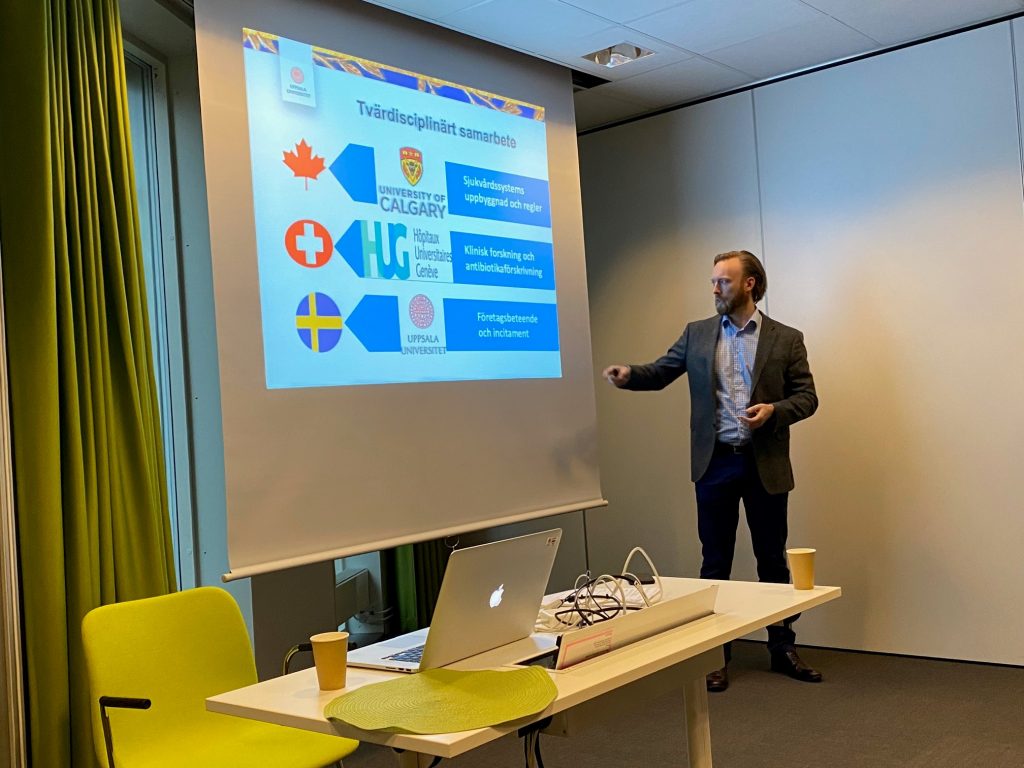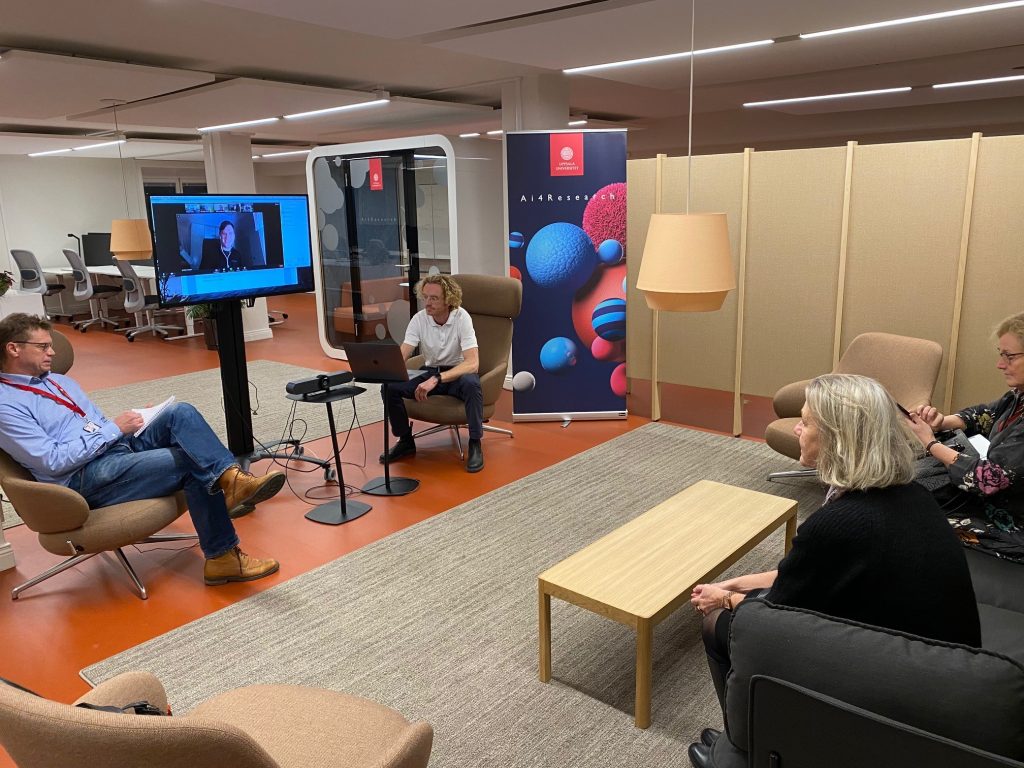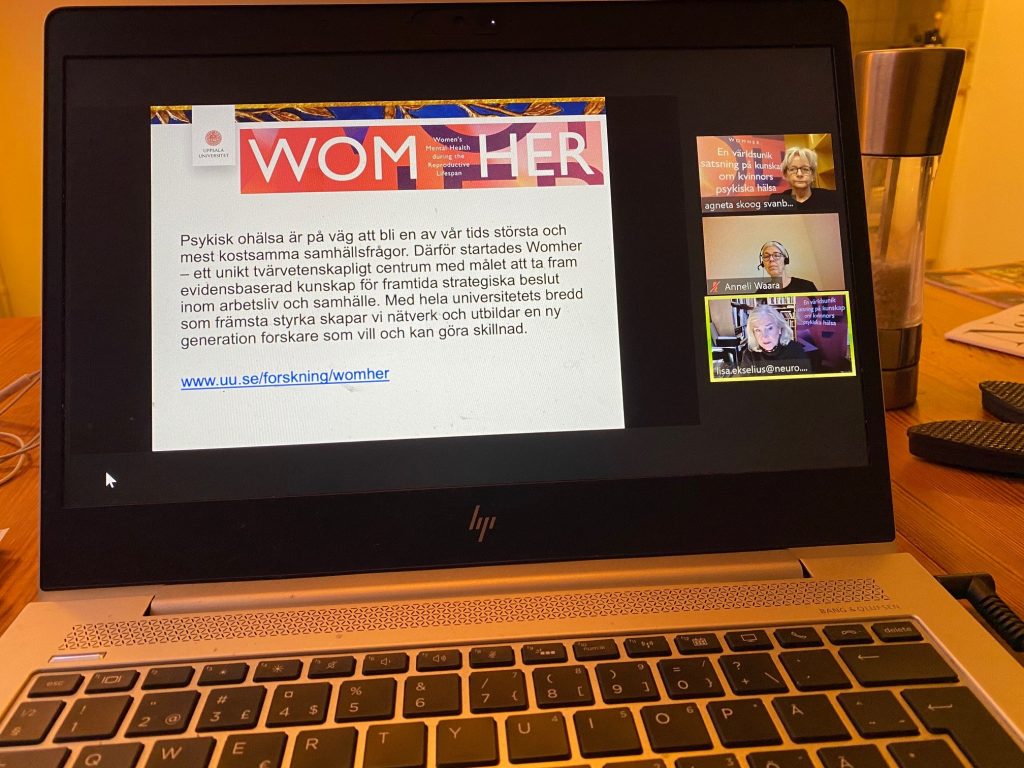This week we took decisions on co-financing for two new cross-cutting research initiatives: Uppsala Diabetic Centre (UDC) and Higher Education as Research Object (HERO). We also approved continued funding for Uppsala Antibiotic Centre (UAC).
These research centres are just a few of the multidisciplinary initiatives conducted at our University in recent years. This is a pleasing and exciting development which the disciplinary domains have stimulated and encouraged in an impressive manner, showing great commitment.
In the course of a number of weeks this autumn, the University management has had the opportunity to visit some of these centres. At first the visits could be conducted live, but we later switched to virtual visits. The visits have been inspiring and impressive and have given us a more in-depth picture of the opportunities and challenges associated with cross-cutting initiatives.

It has been fascinating to see how the different centres have tackled the challenge of creating something new across disciplinary lines. We visited the multidisciplinary graduate school in sustainable development now being established at Campus Gotland. Next we visited Uppsala Antibiotic Centre UAC, whose research environment is also built around a common research school. Those involved are not physically located in one place, but they have joint seminars and other activities. AI4Research has instead initiated internal sabbaticals, with senior researchers from different parts of the University spending a period at the AI hub. WoMHeR has 16 doctoral students on the way in an interdisciplinary research school with six different themes related to women’s mental health. Meanwhile, at Uppsala University Sustainability Initiatives, UUSI, all five themes are underway and several research applications have been submitted. Next week we will make one final visit, to the Centre for Multidisciplinary Studies on Racism (CEMFOR).

We hear many recurring themes during our visits. Multidisciplinary meeting places create inspiring discussions and new ideas, as well as knowledge about and respect for one another’s methods. Cooperation between researchers with backgrounds in different fields leads to personal development, but is also challenging. It is often easier for the doctoral students to connect than it is for their supervisors, who are more firmly rooted in the culture of their own discipline. Moreover, there are some administrative complications.

This type of initiative is the way of the future, of that we are certain. The great challenges confronting society demand expertise from multiple disciplines and perspectives. Being sensitive to contemporary problems in society can focus the questions we ask and move research forward. Thanks to all the initiatives now in progress, we will have many young and ambitious researchers a few years down the road, with experience of multidisciplinary cooperation that they can build on in academia and the wider community.
Change takes time and we need both strong disciplines and strong multidisciplinary environments. We need to learn more about success factors in practice. The University needs to find ways to put the lessons learned to good use. In this connection, another cross-cutting initiative, CIRCUS, may be a valuable resource. Rather than being a thematic initiative, this is a centre that specialises in stimulating and developing multidisciplinary research projects. It appears clear to us that there is much to be gained from an exchange of experience between CIRCUS and other cross-cutting initiatives.
Having such a broad range of strong disciplines, Uppsala University has extraordinary potential for innovative constructions across boundaries. At the same time, strong disciplines with strong internal cultures and methods mean there are many obstacles to overcome on the way. This point is emphasised by Professor Emeritus Anders Bäckström, who recently published a book on multidisciplinary cooperation. https://mp.uu.se/web/nyheter/-/erfarenheter-av-att-starta-mangvetenskapligt-centrum
